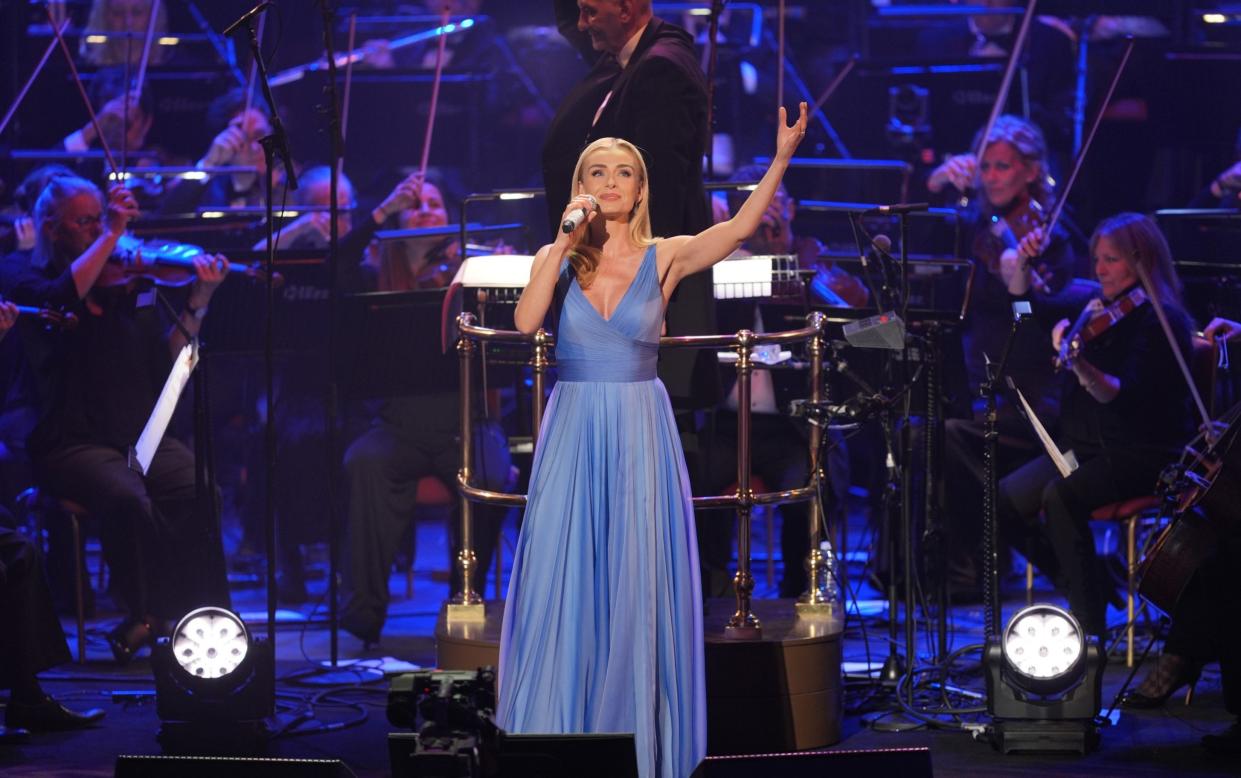D-Day 80: Remembering the Normandy Landings, Royal Albert Hall: Our veterans deserved better than this

When the bravest of Britain’s armed forces stormed the Normandy beaches on D-Day on June 6, 1944, few of them would have imagined that, 80 years later, their courage and sacrifice would be marked by the evergreen singer Lulu belting out How Can a Moment Last Forever, a song from the recent Beauty and the Beast film. Yet this was one of the many perplexing ways that the Royal Albert Hall’s commemorative extravaganza, D-Day 80, chose to mark the occasion. Throwing everything but the figurative kitchen sink at the part-concert, part-readings, its moments of hard-won poignancy were outweighed by a sense that the organisers lacked faith in the power of the event itself and sought desperately to over-compensate accordingly.
Hosted with warmth but little gravitas by Davina McCall, the overlong tribute featured everything from well-performed renditions of such patriotic standards as Elgar’s Nimrod and Eric Coates’s theme from The Dam Busters to diary entries and letters from the beaches read by the starry likes of Toby Jones and Tamsin Greig. Sometimes, the special guests seemed to be present for their fame rather than their appropriateness – why book the comedian Jason Manford and make him read an incongruously serious letter, rather than a humorous one? – and even Jones, who had bothered to learn his letter rather than recite it from the autocue, was all but drowned out by the saccharine accompaniment of the Royal Philharmonic Concert Orchestra.
There were undeniably affecting moments. McCall may not have elicited any particular insights from the centenarian veterans who she interviewed during the evening, but there was a wry laugh to be had when Percy, informed that “you are 104 years old, which makes you one of the oldest veterans alive”, dryly responded, “So I’ve been told.” And it was hard to hold back a tear when Donald – a mere year younger than that – said “we survived, and that makes great history”, even as he noted that “thinking of all the heroes that lay overseas, it’s very very touching.” They will not be here in another 10 years; this may be the last time they will be able to share their experiences in public.
But the hits were, unfortunately, outweighed by the misses. The musical choices (Bring Him Home, Copland’s Fanfare for the Common Man) were rote, and it often felt as if there was an element of cheap manipulation. The latter was exemplified by the decision to conclude not with We’ll Meet Again, sung with gusto by Katie Ashby of the D-Day Darlings, but instead with Katherine Jenkins’s You’ll Never Walk Alone, which could just as easily have soundtracked a dozen other public events.
I was sitting next to Michael, the nephew of one veteran, Sid Verrier, whose letters were read out. He was not asked to participate publicly, perhaps because, as he said candidly to me, “Sid came home and never came home”, spending the next 60 years of his life in mental institutions. A little of this grit and truth would have made the evening an unforgettable, rather than an endurable, one.
No further performances
